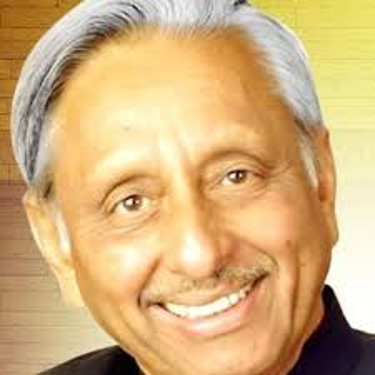Chapter 1: Footnote 1
1. Interested readers might like to see the text of the speech at the book’s website: http://www.amaverickinpolitics.com or by scanning the QR code given at the end of this chapter.
SHRI MANI SHANKAR AIYAR (Mayiladuturai):
Mr. Speaker, Sir,
For all the six years that I knew Rajiv Gandhi, he walked in the shadow of death, and I walked in his shadow. Now, death has taken him away and I am left in the shadows.
What I remember most is that he never allowed the fear of death to stand in the way of taking the decision that he thought was right. He believed that it is the duty of every human being to fulfil himself to the maximum extent, and if, in the process of doing so, there was danger, then danger was to be faced and not to be run away from. He was a man of exceptional courage, he was a brave man, and he was a compassionate man. He had a deep love for human beings, he had a particular place in his heart always for those who are oppressed, for all those who are suppressed. He believed deeply in our democracy, he believed that democracy as it now exists is flawed because there is a super-structure without a sound base. So, he toiled towards establishing that sound foundation for our democracy.
He believed deeply in our socialism, not perhaps the socialism of the well-known text-books, but a socialism based upon compassion for the common man, a socialism based upon using the gifts of knowledge, of science and technology, for the advancement of the humblest and the poorest.
His was a profound belief in secularism. Secularism, as he saw it, was a celebration of all that was great in India. What he saw as great in India was not simply the political entity which we today call the Union of India, but an idea, a concept, of the celebration of diversity. That is why he gloried in all the different parts of India, in all the different languages of India, in all the different cultures of India, in all the different religions of India, in all the different trends of thought and schools of opinion that exist in this country. And it was this celebration of diversity, this belief that India could not be India unless every part of India, however minor it might be in numbers, was celebrated as an integral part of this great country that he saw it as absolutely necessary for every minority - religious, linguistic, cultural or even in terms of opinion and schools of thought - to belong to this larger entity.
At the moment when Fate decreed that he was to die, he saw in some ways the vision of Mahatma Gandhi and Pandit Jawaharlal Nehru being fulfilled with the two great Super Powers coming to an understanding among themselves. But he recognised, as perhaps no other Indian did, that the period of detente made Nonalignment more relevant than ever before because the ultimate purpose of Nonalignment is to put an end to the Quest for Dominance. That Quest for Dominance has not ended merely because there is a detente between the two Super Powers. When he integrated this into his vision of India, it was a holistic vision which did not merely look to see what India’s place was in today’s contemporary world, but also sought to see what was India’s place in the history of world civilisation. When he looked back to the beginnings of time, to eight thousand, nine thousand or ten thousand years ago when human civilisation first came upon our planet, he saw that India’s civilisation was not perhaps the oldest in the world, nor perhaps the only one that was continuous, but it was certainly the only civilisation in the world that had learnt to come to terms with heterogeneity. If the world is to survive, it is necessary that the whole world imbibe the essential values of the Indian civilisation which has the capacity to live with diversity, which has the capacity to tolerate diversity, which has, above all, the capacity to celebrate diversity.
If we live up to that vision of India, then it is only the body of Shri Rajiv Gandhi that would have died, the soul of Shri Rajiv Gandhi, which is the soul of India, the soul of India which has animated human civilisation everywhere upon this planet, will continue to live.
I had the privilege of interacting perhaps more closely with him than any other human being at the intellectual level because we would spend hours discussing his speeches, writings and articles and, in the course of this, I came to see a human being whose inspiration, particularly his dedication to non-violence, came straight out of the Mahatma’s school of thought and whose idiom was that of Jawaharlal Nehru, and whose glory in the spiritual legacy of India came straight out of Swami Vivekananda. That great soul is no more with us; he has gone.
The last gift that he gave me was the seat upon which I sit. I approach this seat in the same spirit as Bharata approached his seat when Rama went into vanavas. But Rama we know went into vanavas for 14 years. I approach this seat knowing that Shri Raiiv Gandhi will not return from the vanavas into which terrorism and violence have sent him.
Thank you, Sir.
A Maverick in Politics
Exploring the journey of a political maverick.
Insight
Legacy
© 2024. All rights reserved with Mani Shankar Aiyar. The website is designed and developed by Sunil Binjola
